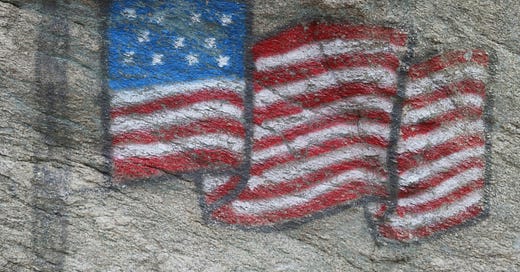Cards on the table: I’m a globalist. It’s not a term that I would have invented for myself, but since it was introduced into the vernacular a decade ago, I have to confess that it fits.
I grew up in the shadow of San Francisco, a place that took pride in being the most “European” city in the U.S. As a child, I became fascinated with the world and would receive almanacs, atlases, and other reference books as gifts. From an early age, I learned that when traveling abroad, it was important to blend in, learn local customs, master a few foreign phrases, and not be too American. Probably the angriest I ever saw my father was when two badly dressed American seniors stopped him on a cobblestone street in Rome to ask where the nearest McDonald’s was.
As an adult, I’ve devoted my career to developing an understanding of the world and articulating it to other Americans. This has taken me to many interesting places, and I’ve had the privilege of spending seven years overseas and learning two foreign languages. One of the reasons I love living in New York City is its cosmopolitanism: the ethnic enclaves, the international restaurants, the access to culture, the smattering of languages overheard on the subway or in the park.
One of the more surreal aspects of the last 100 days has been understanding that people in my class — globalists — are now regarded as adversaries by the U.S. government. There’s always been an anti-intellectual, nativist streak in this country, and a widespread distrust of so-called elites. But to see it laid out in such stark terms has been startling. The idea, I suppose, is that we are insufficiently loyal to the U.S.
In my case, though, globalism made me love and admire the United States more, not less. I found that many of the country’s problems — the racism, the inequality, the environmental degradation — existed elsewhere, and in some cases even more acutely.1Traveling in the developing world made me feel profoundly lucky to live in such a wealthy country, where we accept a high standard of living as a matter of course.2 Living in and visiting countries without individual rights and press freedom made me grateful that these existed back home.
It’s been strange, and quite sad, to have your country be governed by people who don’t seem to like it very much. The Trump administration has made it clear that they’re more worried about domestic threats — whether illegal immigrants or, say, feckless government bureaucrats — than they are foreign ones.3 They’ve managed to convince millions of Americans that things are so bad that we simply have to rip everything up and start over. We’ve learned from the Biden/Harris campaign that saying otherwise wasn’t a viable political strategy in 2024.
But when you look at what we’ve built over the last two and a half centuries in this country, and look at what the world beyond our shores, I think we’d have paused before embarking on this demolition project.
If you ever want to see a country indifferent to its natural environment, go to China.
American capitalism might be coarse and consumerist, but it’s vastly preferable to the economic system in Cuba.
It’s just very strange to hear a billionaire Republican president say that Americans need to suck it up and buy less at Christmas, like a true socialist.




